
As the spread of the novel coronavirus culminated in a state of emergency in China, Chinese actress NiNi made a decision. She would use her face (the word “face” is homograph of the word “reputation” in Chinese, as face is metaphor for reputation in English) to mobilise local manufacturers of protective clothing and masks in her hometown, Nanjing, to produce these necessary medical supplies for the Han Hong Love Charity Foundation (HHLCF).
As a celebrity volunteer at HHLCF, besides donating money, Ni forms part of the charity organisation’s data collection team, which collects, verifies and organises hospital requests for emergency aid. She then liaises with domestic and foreign manufacturers with the adequate capacity to produce medical resources badly needed in the pandemic.
In February, when the pandemic hit the hardest, those who could help believed in “giving their all.” This impetus stemmed not only from collective empathy for those suffering but also, to a large extent, from individual experience. And Ni herself, having almost lost loved ones to illness in the past, shared that she “couldn’t possibly not respond” to people’s distress calls.
Now, the Chinese have largely surmounted the crisis, but the nation nevertheless remains wary yet contemplative: To thrive today, a firm commitment to the notion of community, which best safeguards collective interests, may perhaps be the answer.
This story is from the July 2020 edition of T Singapore: The New York Times Style Magazine.
Start your 7-day Magzter GOLD free trial to access thousands of curated premium stories, and 9,000+ magazines and newspapers.
Already a subscriber ? Sign In
This story is from the July 2020 edition of T Singapore: The New York Times Style Magazine.
Start your 7-day Magzter GOLD free trial to access thousands of curated premium stories, and 9,000+ magazines and newspapers.
Already a subscriber? Sign In
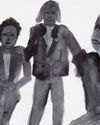
Look At Us
As public memorials face a public reckoning, there’s still too little thought paid to how women are represented — as bodies and as selves.
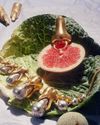
Two New Jewellery Collections Find Their Inspiration In The Human Anatomy
Two new jewellery collections find their inspiration in the human anatomy.
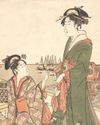
She For She
We speak to three women in Singapore who are trying to improve the lives of women — and all other gender identities — through their work.
Over The Rainbow
How the bright colours and lively prints created by illustrator Donald Robertson brought the latest Weekend Max Mara Flutterflies capsule collection to life.

What Is Love?
The artist Hank Willis Thomas discusses his partnership with the Japanese fashion label Sacai and the idea of fashion in the context of the art world.

The Luxury Hotel For New Mums
Singapore’s first luxury confinement facility, Kai Suites, aims to provide much more than plush beds and 24-hour infant care: It wants to help mothers with their mental and emotional wellbeing as well.
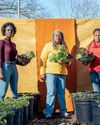
Who Gets To Eat?
As recent food movements have focused on buying local or organic, a deeper and different conversation is happening among America’s food activists: one that demands not just better meals for everyone but a dismantling of the structures that have failed to nourish us all along.
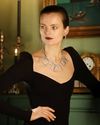
Reimagining The Future Of Fashion
What do women want from their clothes and accessories, and does luxury still have a place in this post-pandemic era? The iconic designer Alber Elbaz thinks he has the answers with his new label, AZ Factory.

A Holiday At Home
Once seen as the less exciting alternative to an exotic destination holiday, the staycation takes on new importance.
All Dressed Up, Nowhere To Go
Chinese supermodel He Sui talks about the unseen pressures of being an international star, being a trailblazer for East Asian models in the fashion world, and why, at the end of the day, she is content with being known as just a regular girl from Wenzhou.